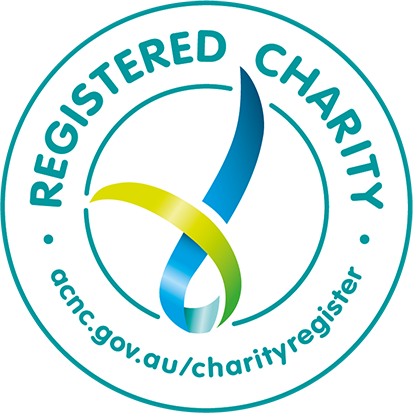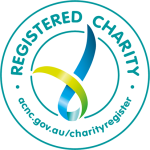What is road trauma? This question opens up a crucial discussion for every resident of Western Australia. More than just statistics, road trauma signifies the physical injuries and emotional distress endured by individuals and communities due to traffic incidents. As National Road Safety Week 2024 approaches in May, it’s a timely reminder of the collective action needed to address this issue. In the following article, we’ll explore this topic in more detail and outline what you can do to get involved.
Road Trauma and its Significance in Western Australia
In Western Australia, road trauma represents a significant concern that is marked by the physical injuries and emotional pain inflicted by traffic incidents on individuals and communities. Each year, around 1,200 lives are lost, and another 44,000 individuals suffer serious injuries on Australian roads.
Yet, these aren’t just numbers, they represent real people – children, young adults and families – whose lives are changed forever. The reality is that traffic accidents are the leading cause of death for children under 15 and the second for Australians aged 15 to 24. Behind these statistics is a clear message: road trauma is preventable.
National Road Safety Week 2024: Goals and Themes
The week-long event from 5-12 May 2024 is carefully planned, with each day dedicated to different themes and calls-to-action aimed at promoting safer driving behaviours. Here’s a look at the 2024 goals and themes:
- Sunday, 5th May: Remembering the 1,200 lives lost; reflecting on the impact of road trauma.
- Monday, 6th May: Make your road safety pledge to drive so others survive.
- Tuesday, 7th May: Focus on educating young drivers, ensuring road safety for the next generation.
- Wednesday, 8th May: Protect emergency services and roadside workers by driving safely around them.
- Thursday, 9th May: Encourage drivers to consider vehicle safety in their choices.
- Friday, 10th May: Emphasise the importance of driving without distractions.
- Saturday, 11th May: Advocate for the safety of vulnerable road users like cyclists and pedestrians.
- Sunday, 12th May: Highlight the unique challenges and importance of being cautious on regional roads.
Constable Care Foundation’s Mission and Impact
For over three decades, the Constable Care Foundation has been at the forefront of safety education in Western Australia. Utilising theatre, technology, film and art, it delivers creative harm-prevention programs that have touched the lives of tens of thousands of children and young people.
As an evidence-based organisation, it partners with Edith Cowan University’s Child Health Promotion Research Centre to ensure its programs are effective. Through robust evaluation processes, the Foundation demonstrates significant impacts on the knowledge, attitudes and behavioural intentions of young participants, proving its commitment to making a lasting difference.
Safety School: Educating the Next Generation
Safety School is a cornerstone initiative of the Constable Care Foundation, designed to teach young students about safety through interactive learning. By simulating realistic urban and road environments, the program imparts essential knowledge about pedestrian, bicycle and public transportation safety, preparing children to navigate these settings confidently and safely.
Safety School On The Road: Bringing Safety Education to Schools
Expanding the reach of Safety School, the Safety School On The Road initiative brings personalised safety education directly to students across various school settings. This mobile incursion program ensures that vital safety principles are accessible to all students, fostering a culture of safety from a young age.
Preventative Measures and Safety Tips
Driving safely not only protects you but also those around you. Here are some safety tips to help you avoid road trauma:
- Adhere to Speed Limits: Speeding increases accident risks, so always obey posted speed limits.
- Avoid Distractions: Minimise distractions by keeping mobile phones out of reach and maintaining focus on the road ahead.
- Regular Vehicle Maintenance: Ensure your vehicle’s brakes, tyres and lights are regularly checked and maintained for optimal performance.
- Use Seat Belts: Wearing seat belts significantly reduces injury risks in the event of an accident; ensure all passengers are buckled up.
- Drive Responsibly: By following these simple yet effective tips, drivers safeguard their own well-being and contribute to the overall safety of everyone sharing the roadways.
Support Systems for Road Trauma Victims
For those affected by road trauma, Western Australia offers a comprehensive network of support. This includes medical care tailored to physical injuries, psychological counselling to address emotional distress and community support groups providing a space for shared experiences and healing.
Access to these resources ensures that individuals and families affected by road trauma receive the necessary care and support to navigate their recovery. By leveraging these support systems, victims can find the strength and guidance needed to rebuild their lives post-trauma.
How You Can Get Involved in National Road Safety Week
Participating in National Road Safety Week is a powerful way to contribute to road safety efforts. Whether by pledging to drive safely, educating others about the risks of road trauma or supporting initiatives aimed at reducing accidents, every action counts towards creating safer roads for everyone.
Ultimately, National Road Safety Week 2024 is more than just an event – it’s a call to action for every Western Australian to take responsibility for reducing road trauma. By engaging with the week’s activities and adopting safer driving habits, we can all contribute to a safer, more responsible driving culture that protects and preserves lives.








